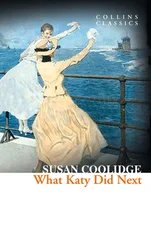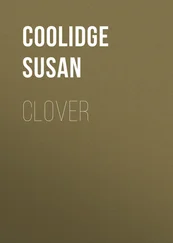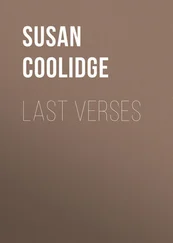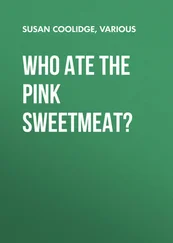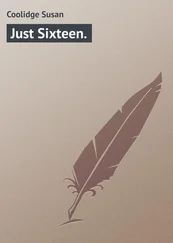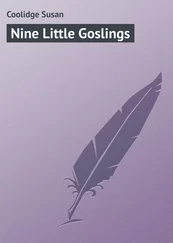Susan Coolidge - In the High Valley
Здесь есть возможность читать онлайн «Susan Coolidge - In the High Valley» — ознакомительный отрывок электронной книги совершенно бесплатно, а после прочтения отрывка купить полную версию. В некоторых случаях можно слушать аудио, скачать через торрент в формате fb2 и присутствует краткое содержание. Жанр: foreign_children, foreign_prose, foreign_language, на английском языке. Описание произведения, (предисловие) а так же отзывы посетителей доступны на портале библиотеки ЛибКат.
- Название:In the High Valley
- Автор:
- Жанр:
- Год:неизвестен
- ISBN:нет данных
- Рейтинг книги:4 / 5. Голосов: 1
-
Избранное:Добавить в избранное
- Отзывы:
-
Ваша оценка:
- 80
- 1
- 2
- 3
- 4
- 5
In the High Valley: краткое содержание, описание и аннотация
Предлагаем к чтению аннотацию, описание, краткое содержание или предисловие (зависит от того, что написал сам автор книги «In the High Valley»). Если вы не нашли необходимую информацию о книге — напишите в комментариях, мы постараемся отыскать её.
In the High Valley — читать онлайн ознакомительный отрывок
Ниже представлен текст книги, разбитый по страницам. Система сохранения места последней прочитанной страницы, позволяет с удобством читать онлайн бесплатно книгу «In the High Valley», без необходимости каждый раз заново искать на чём Вы остановились. Поставьте закладку, и сможете в любой момент перейти на страницу, на которой закончили чтение.
Интервал:
Закладка:
Imogen had never been on a great sea-going vessel before, and it struck her as being very crowded and confused as well as bewilderingly big. She stood clutching her bags and bundles nervously and feeling homesick and astray while farewells and greetings went on about her, and the people who were going and those who were to stay behind seemed mixed in an inextricable tangle on the decks. Then a bell rang, and gradually the groups separated; those who were not going formed themselves into a black mass on the pier; there was a great fluttering of handkerchiefs, a plunge of the screw, and the steamer was off.
Lionel, who had been seeing to the baggage, now appeared, and took Imogen down to her stateroom, advising her to get out all her warm things and make ready for a rough night.
"There's quite a sea on outside," he remarked. "We're in for a rolling if not for a pitching."
"Lion!" cried Imogen, indignantly. "Do you mean to say that you suppose I'm going to be sick, – I, a Devonshire girl born and bred, who have lived by the sea all my life? Never!"
"Time will show," was the oracular response. "Get the rugs out, any way, and your brushes and combs and things, and advise Miss What-d'-you-call-her to do the same."
"Miss What-d'-you-call-her" was Imogen's room-mate, a perfectly unknown girl, who had been to her imagination one of the chief bug-bears of the voyage. She was curled up on the sofa in a tumbled little heap when they entered the stateroom, had evidently been crying, and did not look at all formidable, being no older than Imogen, very small and shy, a soft, dark-eyed appealing creature, half English, half Belgic by extraction, and going out, it appeared, to join a lover who for three years had been in California making ready for her. He was to meet her in New York, with a clergyman in his pocket, so to speak, and as soon as the marriage ceremony was performed, they were to set out for their ranch in the San Gabriel Valley, to raise grapes, dry raisins, and "live happily all the days of their lives afterward," like the prince and princess of a fairy tale.
These confidences were not made immediately or all at once, but gradually, as the two girls became acquainted, and mutual suffering endeared them to each other. For, in spite of Imogen's Devonshire bringing up, the English Channel proved too much for her, and she had to endure two pretty bad days before, promoted from gruel to dry toast, and from dry toast to beef-tea, she was able to be helped on deck, and seated, well wrapped up, in a reclining chair to inhale the cold, salty wind which was the best and only medicine for her particular kind of ailment.
The chair next hers was occupied by a pretty, dark-eyed, and very lady-like woman, with whom Lionel had apparently made an acquaintance; for he said, as he tucked Imogen's rugs about her, "Here's my sister at last, you see;" which off-hand introduction the lady acknowledged with a pleasant smile, saying she was glad to see Miss Young able to be up. Her manner was so unaffected and cordial that Imogen's stiffness melted under its influence, and before she knew it they were talking quite like old acquaintances.
Imogen was struck by the sweet voice of the stranger, with its well-bred modulations, and also by the good taste and perfection of all her little appointments, from the down pillow at top of her chair to the fur-trimmed shoes on a pair of particularly pretty feet at the other end. She set her down in her own mind as a London dame of fashion, – perhaps a countess, or a Lady Something-or-other, who was going out to see America.
"Your brother tells me this is your first voyage," said the lady.
"Yes. He has been out before, but none of us were with him. It's all perfectly strange to me" – with a sigh.
"Why do you sigh? Don't you expect to like it?"
"Why no, not like it exactly. Of course I'm glad to be with Lionel and of use to him, but I didn't come away from home for pleasure."
"Pleasure must come to you, then," said the lady, with a smile. "And really I don't see why it shouldn't. In the first place you are acting the part of a good sister; and you know the adage about duty performed making rainbows in the soul. And then Colorado is a beautiful State, with the finest of mountain views, a wonderful climate, and such wild flowers as grow nowhere else. I have some friends living there who are quite infatuated about it. They say there is no place so delightful in the world."
"That is just the way with my brother. It's really absurd the way he talks about it. You would think it was better than England!"
"It is sure to be very different; but all the same, you will like it, I think."
"I hope so" – doubtfully.
Just then came an interruption in the shape of a tall girl of fifteen or sixteen, with a sweet, childish face who came running down the deck accompanied by a maid, and seized the strange lady's hand.
"Mamma," she began, "the first officer says that if you are willing he will take me across to the bows to see the rainbows on the foam. May I go? He says Anne can go too."
"Yes, certainly, if Mr. Graves will take charge of you. But first speak to this young lady, who is the sister of Mr. Young, who was so kind about playing ship-coil with you yesterday, and tell her you are glad she is able to be on deck. Then you can go, Amy."
Amy turned a pair of beautiful, long-lashed, gray eyes on Imogen.
"I'm glad you're better, Miss Young. Mamma and I were sorry you were so sick," she said, with a frank politeness that was charming. "It must be very disagreeable."
"Haven't you been sick, then?" said Imogen, holding fast the little hand that was put in hers.
"No, I'm never sick now . I was, though, the first time we came over, and I behaved awfully . Do you recollect, mamma?"
"Only too well," said her mother, laughing. "You were like a caged bird, beating yourself against the bars in desperation."
Amy lingered a moment, while a dimple played in her pink cheek as if she were moved by some amusing remembrance.
"Ah, there's Mr. Graves," she said. "I must go. I'll come back presently and tell you about the rainbows, mamma."
"I suppose most of these people on board are Americans," said Imogen after a little pause. "It's always easy to tell them, don't you think?"
"Not always. Yes, I suppose a good many of them are – or call themselves so."
"What do you mean by 'call themselves so'? That girl is one, I am sure," indicating a pretty, stylish young person, who was talking rather too loudly for good taste with the ship's doctor.
"Yes, I imagine she is."
"And those people over there," pointing to a large, red-bearded man who lay back in a sea-chair reading a novel, by the side of a fat wife who read another, while their little boy raced up and down the deck quite unheeded, and amused himself by pulling the rugs off the knees of the sicker passengers. "They are Americans, I know! Did you ever see such creatures? The idea of letting that child make a nuisance of himself like that! No one but an American would allow it. I've always heard that children in the States do exactly as they please, and the grown people never interfere with them in the least."
"General rules are dangerous things," said her neighbor, with an odd little smile. "Now, as it happens, I know all about those people. They call themselves Americans because they have lived in Buffalo for ten years and are naturalized; but he was born in Scotland and she in Wales, and the child doesn't belong exactly to any country, for he happened to be born at sea. You see you can't always tell."
"Do you mean, then, that they are English, after all?" cried Imogen, disconcerted and surprised.
"Oh, no. Every body is an American who has taken the oath of allegiance. Those Polish Jews over there are Americans, and that Italian couple also, and the big party of Germans who are sitting between the boats. The Germans have a large shop in New York, and go out every year to buy goods and tell their relations how superior the United States are to Breslau. They are all Americans, though you would scarcely suppose it to look at them. America is like a pudding, – plums from one part of the world, and spice from another, and flour and sugar and flavoring from somewhere else, but all known by the name of pudding."
Читать дальшеИнтервал:
Закладка:
Похожие книги на «In the High Valley»
Представляем Вашему вниманию похожие книги на «In the High Valley» списком для выбора. Мы отобрали схожую по названию и смыслу литературу в надежде предоставить читателям больше вариантов отыскать новые, интересные, ещё непрочитанные произведения.
Обсуждение, отзывы о книге «In the High Valley» и просто собственные мнения читателей. Оставьте ваши комментарии, напишите, что Вы думаете о произведении, его смысле или главных героях. Укажите что конкретно понравилось, а что нет, и почему Вы так считаете.



